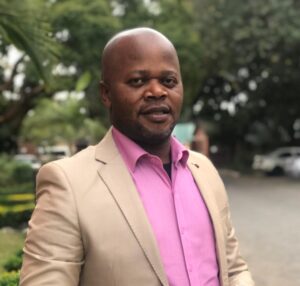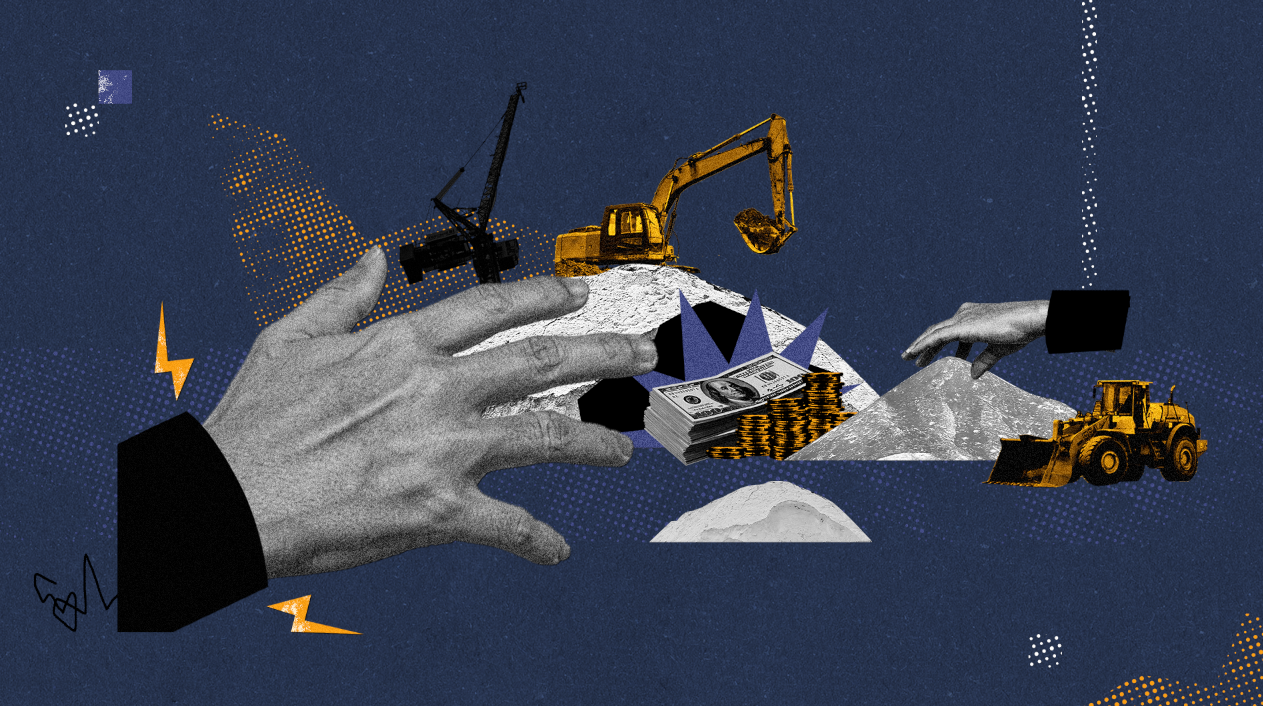This op-ed has first been published in the South-African media Daily Maverick
Read our key recommendations for a shared African vision on transition minerals extraction here.
Zambian and other African nations’ minerals are crucial for a low carbon world. But reform is essential if our people are to benefit from the wealth they will create, writes Nsama Chikwanka.
It’s a story that has played out across the world time and again. Mineral resources are discovered and a nation thinks it has struck it rich.
Hopes rise among the population for better schools, roads and healthcare. But the wealth the resources create never reaches ordinary citizens. Instead, it’s captured by elites who funnel it into offshore bank accounts or squander it on lavish lifestyles.
Zambia has a chance to break this destructive pattern.
Demand is soaring for the raw materials the world needs to secure a clean energy future, and Zambia has abundant reserves of two key ones: the cobalt and copper used in wind and solar powered technology and electric vehicle (EV) production.
Now the world is rushing to extract them.
On January 18, the United States’ State Department published a Memorandum of Understanding (MoU) with Zambia and the Democratic Republic of Congo (DRC) to develop an EV battery supply chain. Copper and cobalt would not just be extracted in these countries, the MoU said, but EV batteries themselves would be processed, manufactured and assembled in them.
This followed an earlier announcement in December by Zambian President Hakainde Hichilema, who said that the California-based KoBold Metals, which is backed by Bill Gates and Jeff Bezos, and uses artificial intelligence to identify battery metal deposits, was investing in developing a new mine in Zambia.
Flawed consultations
This coveting of our natural resources is nothing new: Zambia has been a major copper producer for more than a century.
But with copper demand expected to increase by up to threefold by 2040, and a copper boom looming, we cannot repeat historic mistakes. In the past when copper prices rose, poverty or inequality in our country did not decline, and Zambia remains a deeply unequal nation.
For our copper and cobalt to drive development and benefit all Zambians, significant legal and policy reforms are needed.
The 2022 Mineral Resources Development Policy and its Implementation Plan, which the Zambian government approved in November last year, offered a crucial chance to do so. It sets out the government’s vision for maximising the benefits from Zambia’s mineral resources.
For these benefits to be realised, the public, and in particular the communities living close to extraction sites and who are directly impacted by mining, must be properly consulted.
Unfortunately public consultations on the new policy were carried out hurriedly and with serious shortcomings – meaning that it won’t address the mining industry’s most pressing issues, or fulfil citizens’ expectations.
In my role as country coordinator for Publish What You Pay (PWYP) Zambia, a coalition of more than 50 civil society organisations from all the country’s 10 regions, advocating for transparency and accountability of the extractive sector , I have spoken extensively to people in mining communities about their hopes for how Zambia’s mineral resources can improve their lives. From these meetings, we believe that there are a number of specific measures which could make this happen.
First, we need to make sure that any decision to extract minerals is based on a comprehensive assessment of the true costs and benefits. For this, we need to look at the consequences on people, land, forests, and water. How is mining going to impact our population’s health and safety, but also their intangible and irreplaceable natural heritage? Mining is deeply interconnected with other sectors and we need an institutional framework that promotes an extraction that is primarily respectful of our livelihoods and environment.
This won’t happen without a meaningful and inclusive consultation and the participation of all communities affected by mining.
Secondly Zambia’s mining laws need a sub-national revenue sharing mechanism. In simple terms, this means that mining companies would have to make payments to provincial authorities, as they already do in our neighbour, DRC.
This, in turn, would allow communities who are affected by mining to receive a dedicated share of Zambia’s mining profits, ensure that they are compensated for the disruption that mining in their areas can bring, and target funds towards their specific needs.
Finally, since women bear the brunt of mining’s deleterious effects, we need to set aside specific funds to support them. Gender inequality is more pronounced in countries which significantly rely on the extractive sector, as women are most often disadvantaged by mining’s effects on land use, pollution, care work, and sexual exploitation.
And it is not just women who our mining policy must support. It must also tackle the problem of child labour in the sector, and allow children to enjoy their childhoods.
The 2022 mining policy is silent on protecting children and yet child abuse is rampant in the mining sector.
A just transition for Africa
These specific measures are among those which can help ensure that the world’s green energy revolution drives Zambia’s development. And this applies to all mineral-rich countries.
Africa possesses 30% of the world’s mineral reserves, many of them essential for a low-carbon world. The continent is notably home to 19% of the global reserves of metals required to make a standard battery-powered EV.
DRC, Madagascar, South Africa, Zimbabwe and Mali, among other African nations, will all have a vital role in supplying the raw materials needed to meet the growing demand for clean energy technologies.
In a statement released just before the recent COP27 UN climate summit, 250 civil society organisations highlighted the key measures that our leaders must implement, if we want the energy transition to be fair and just for our populations. The principles of community participation, good governance, accountability and transparency which underlie them, must be applied across the whole continent.
Through a shared vision for harnessing Africa’s natural wealth, we can tackle poverty, inequality and gender disparities, fund education and healthcare, and end the resource curse that has plagued so much of our continent for so long.
This week in Cape Town, two conferences are happening where delegates can help shape a common vision for transition mineral mining in Africa: the industry-led African Mining Indaba, and the Alternative Mining Indaba (AMI), started 13 years ago because of civil society’s historic exclusion from the former. To succeed, people – and in particular communities impacted by mining – must be at the heart of this vision, and given a voice in the decisions that affect them.
 Nsama Chikwanka is National Coordinator of Publish What You Pay (PWYP) Zambia, part of the global movement for an open and accountable extractive industry. PWYP Zambia supports communities affected by mining, and is a coalition of more than 50 civil society organisations from all the country’s regions.
Nsama Chikwanka is National Coordinator of Publish What You Pay (PWYP) Zambia, part of the global movement for an open and accountable extractive industry. PWYP Zambia supports communities affected by mining, and is a coalition of more than 50 civil society organisations from all the country’s regions.











